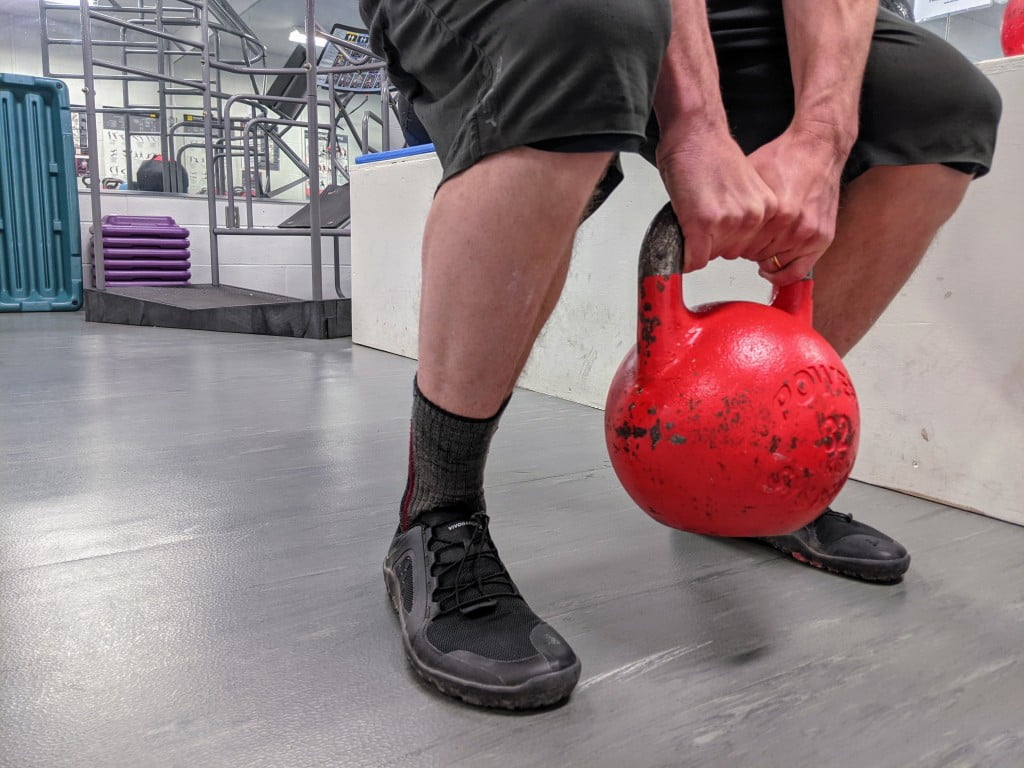Glutamine is a conditionally essential amino acid that plays a vital role in muscle recovery and overall athletic performance. For bodybuilders and fitness enthusiasts, understanding how glutamine aids in recovery can help optimize training results and reduce downtime between workouts. This article explores the specific benefits of glutamine, effective ways to incorporate it into your routine, and debunks common myths surrounding its use.
By providing insights into glutamine’s functions and practical recommendations for supplementation, this guide aims to help you make informed decisions that enhance your fitness journey and support your bodybuilding goals.
In this article you will find:
Understanding Glutamine’s Role in Muscle Recovery
Glutamine, a conditionally essential amino acid, plays a pivotal role in muscle recovery, making it a popular supplement among bodybuilders and fitness enthusiasts. While our bodies naturally produce glutamine, intense physical training can deplete its levels, leading to a potential impact on recovery and performance. Understanding how glutamine aids in muscle recovery is crucial for anyone looking to optimize their training regimen.
What is Glutamine?
Glutamine is the most abundant amino acid in the bloodstream and is involved in various metabolic processes. It serves as a building block for proteins and is vital for the synthesis of neurotransmitters. During periods of stress, such as intense workouts, the body’s demand for glutamine increases significantly.
The Role of Glutamine in Muscle Recovery
After a strenuous workout, muscle fibers experience micro-tears, and the body requires specific nutrients to repair and rebuild these tissues. Glutamine contributes to this recovery process in several ways:
- Cellular Hydration: Glutamine helps maintain cellular hydration by drawing water into muscle cells, which can enhance nutrient delivery and promote recovery.
- Protein Synthesis: It supports protein synthesis, the process through which the body repairs and builds muscle, ensuring that your gains are maximized.
- Immune Function: Intense training can suppress the immune system. Glutamine plays a critical role in supporting immune function, helping to reduce the risk of illness that can sideline training.
- Reduction of Muscle Soreness: Supplementation may help reduce delayed onset muscle soreness (DOMS), allowing athletes to train harder and more frequently.
Scientific Insights on Glutamine and Recovery
Recent studies have highlighted the importance of glutamine in recovery protocols. A research article published in the Journal of the International Society of Sports Nutrition emphasizes glutamine’s role in enhancing recovery by improving muscle repair and reducing inflammation. The findings suggest that supplementing with glutamine post-workout can lead to improved recovery times and better overall performance.
When to Take Glutamine for Optimal Results
For bodybuilders looking to incorporate glutamine into their routine, timing can be as important as dosage. Taking glutamine immediately after a workout can be particularly beneficial, as it helps replenish depleted levels and kickstart the recovery process. Many athletes choose to mix glutamine powder with their post-workout shake or consume it alongside a meal.
In conclusion, understanding glutamine’s vital role in muscle recovery is essential for anyone serious about bodybuilding. Its ability to enhance recovery, support immune health, and reduce soreness makes it a valuable addition to any supplement stack. As we delve deeper into the benefits of glutamine for bodybuilders, we’ll explore how to effectively incorporate it into your routine.
Benefits of Glutamine for Bodybuilders
As a bodybuilder, optimizing your performance and recovery is essential for achieving your goals. One supplement that has gained attention in the fitness community is glutamine. This amino acid offers a range of benefits that can enhance your training experience and results. Below, we’ll explore the specific advantages of glutamine for bodybuilders and why it deserves a place in your supplement regimen.
Enhanced Muscle Recovery
One of the primary benefits of glutamine is its ability to support muscle recovery. Intense workouts lead to muscle breakdown, and glutamine plays a crucial role in repairing and rebuilding these tissues. By supplementing with glutamine, bodybuilders can reduce recovery time and return to training sooner, allowing for more consistent workouts.
Improved Immune Function
Heavy training can put stress on the immune system, making bodybuilders more susceptible to illness. Glutamine supports immune function by providing fuel for immune cells, particularly during times of stress. Research has shown that adequate levels of glutamine can help maintain immune health, ensuring that you stay healthy and can continue your training without interruptions.
Reduction of Muscle Soreness
Delayed onset muscle soreness (DOMS) can hinder your training progress and motivation. Supplementing with glutamine may help reduce the severity of DOMS, allowing you to push through workouts with less discomfort. By minimizing soreness, glutamine enables bodybuilders to maintain a more rigorous training schedule.
Support for Gut Health
Glutamine is essential for maintaining the integrity of the gut lining. A healthy gut is vital for nutrient absorption and overall health. For bodybuilders, this means that a well-functioning digestive system can enhance the absorption of protein and other nutrients necessary for muscle growth. A study published in the Journal of the International Society of Sports Nutrition discusses the importance of glutamine in gut health, emphasizing its role in supporting digestive function.
Increased Muscle Mass
Some studies suggest that glutamine may aid in increasing muscle mass. It does this by promoting protein synthesis and reducing protein breakdown, allowing for a favorable anabolic environment in the body. This is particularly beneficial for bodybuilders looking to increase their muscle size and strength. While the evidence is still emerging, the potential for glutamine to contribute to muscle hypertrophy is an exciting prospect for athletes.
Enhanced Endurance
For bodybuilders who incorporate cardiovascular training into their regimen, glutamine may help improve endurance. Some research indicates that glutamine supplementation can enhance performance during prolonged exercise sessions by reducing fatigue. This benefit can be particularly advantageous during high-volume training periods.
In summary, the benefits of glutamine for bodybuilders are extensive, ranging from enhanced recovery and immune support to improved gut health and muscle mass. As you consider your supplement options, glutamine could be a valuable addition to your stack, helping you achieve your fitness goals more effectively. In the next section, we will discuss how to effectively incorporate glutamine into your routine for optimal results.
How to Effectively Incorporate Glutamine into Your Routine
Incorporating glutamine into your fitness regimen can enhance your recovery and performance. However, to maximize its benefits, it’s essential to understand how to use it effectively. Below, we outline practical strategies for integrating glutamine into your routine, ensuring you get the most out of this powerful amino acid.
Choosing the Right Form of Glutamine
Glutamine supplements come in various forms, including powder, capsules, and tablets. The powder form is particularly popular due to its versatility and ease of mixing with other supplements or beverages. When selecting a glutamine product, consider the following:
- Purity: Look for high-quality supplements with minimal additives or fillers. Brands that offer NSF-certified products ensure that what you’re taking is safe and effective.
- Brand Reputation: Choose well-established brands known for their quality and transparency. Reading customer reviews can provide insight into the effectiveness of a product.
- Cost-Effectiveness: Compare prices per serving to find a product that fits your budget while still offering high-quality ingredients.
Optimal Timing for Glutamine Supplementation
Timing your glutamine intake can significantly impact its effectiveness. Here are the best times to consider:
- Post-Workout: Taking glutamine immediately after your workout can help replenish depleted levels and promote muscle recovery. Mixing it into your post-workout shake is an effective method.
- Before Bed: Consuming glutamine before sleep may support overnight recovery and immune function. This timing can help your body repair muscle tissues while you rest.
- During Intense Training Phases: If you’re in a high-volume training phase, consider taking additional doses throughout the day to maintain optimal glutamine levels.
Recommended Dosage
The appropriate dosage of glutamine can vary depending on your individual needs and training intensity. A common recommendation for bodybuilders is:
- 5 to 10 grams per serving: This dosage is often effective for recovery and performance enhancement.
- 2 to 3 servings per day: Splitting your total daily intake into multiple servings can help maintain steady levels in your bloodstream.
As always, consult with a healthcare professional before starting any new supplement regimen, especially if you have existing health concerns.
Combining Glutamine with Other Supplements
Glutamine can be effectively combined with other supplements for enhanced benefits. Here are some synergistic pairings:
- Protein Powder: Mixing glutamine with your protein shake can promote muscle recovery and growth.
- BCAAs: Taking branched-chain amino acids (BCAAs) alongside glutamine can further support muscle recovery and reduce soreness.
- Electrolytes: Combining glutamine with electrolyte supplements can help maintain hydration and performance during workouts.
Listening to Your Body
As you incorporate glutamine into your routine, it’s crucial to pay attention to how your body responds. Monitor your recovery times, energy levels, and overall performance. Adjust your dosage and timing based on your training intensity and personal preferences. If you notice significant changes or any adverse effects, consult with a healthcare professional for guidance.
By strategically incorporating glutamine into your routine, you can enhance your muscle recovery, support your immune system, and ultimately achieve your bodybuilding goals more effectively. In the next section, we will address common myths and facts about glutamine supplementation to help clarify any misconceptions.
Myths and Facts About Glutamine Supplementation
As with many supplements, glutamine is surrounded by a mix of myths and facts that can create confusion for bodybuilders and fitness enthusiasts. Understanding the truth about glutamine supplementation is essential for making informed decisions about its use. In this section, we will debunk common myths and highlight the facts to clarify the role of glutamine in your fitness journey.
Myth 1: Glutamine is Only for Professional Athletes
Fact: While professional athletes may benefit from glutamine supplementation, it is not exclusive to them. Bodybuilders of all levels, including recreational and amateur athletes, can experience enhanced recovery, reduced muscle soreness, and improved immune function through glutamine supplementation. Anyone engaging in intense training can find value in this amino acid.
Myth 2: Glutamine is a Steroid
Fact: Glutamine is a natural amino acid, not a steroid or performance-enhancing drug. It is produced by the body and is classified as a conditionally essential amino acid, meaning that while the body can produce it, supplementation may be beneficial during periods of intense physical stress. Glutamine does not carry the risks or legal implications associated with anabolic steroids.
Myth 3: All Glutamine Supplements are the Same
Fact: The quality of glutamine supplements can vary significantly between brands. Factors such as purity, form (powder, capsule, etc.), and manufacturing practices all influence the effectiveness of a supplement. It’s important to choose high-quality products from reputable brands that undergo third-party testing for purity and potency. Look for certifications, such as NSF or Informed-Sport, to ensure you’re getting a reliable product.
Myth 4: Glutamine Alone Will Build Muscle
Fact: While glutamine can support muscle recovery and growth, it is not a magic solution for building muscle. Effective muscle growth requires a combination of adequate protein intake, a balanced diet, and a well-structured training program. Glutamine can complement these efforts but should not replace foundational nutrition and training principles.
Myth 5: You Can Get Enough Glutamine from Food Alone
Fact: While glutamine is found in various foods such as meat, fish, eggs, dairy, and certain vegetables, individuals engaging in high-intensity training may require higher levels than can be obtained through diet alone. Supplementation can help meet these increased demands, especially during intense training phases or recovery periods.
Myth 6: Glutamine Causes Weight Gain
Fact: There is no scientific evidence to suggest that glutamine supplementation causes weight gain. In fact, glutamine may help reduce body fat by supporting muscle recovery and maintaining lean muscle mass during calorie deficits. It’s important to remember that weight management is influenced by overall diet and exercise, not solely by individual supplements.
Conclusion: The Importance of Informed Choices
Understanding the facts about glutamine supplementation can help you make informed decisions that align with your fitness goals. By debunking these myths, you can better appreciate the role of glutamine in recovery and performance enhancement. As you consider incorporating glutamine into your routine, remember to prioritize quality products and consult with a healthcare professional if you have any concerns. With the right knowledge, you can harness the benefits of glutamine to support your bodybuilding journey. Glutamine is a conditionally essential amino acid that plays a crucial role in muscle recovery, immune support, and overall performance for bodybuilders. It aids in cellular hydration, protein synthesis, and reducing muscle soreness, making it a valuable addition to any supplement regimen. Optimal timing for glutamine intake is immediately post-workout and before bed, with recommended dosages typically ranging from 5 to 10 grams per serving, taken 2 to 3 times a day.
When choosing a glutamine supplement, prioritize high-quality products from reputable brands and consider combining it with protein powders or BCAAs for enhanced recovery benefits. It’s important to dispel common myths surrounding glutamine, such as it being exclusive to professional athletes or a magical solution for muscle growth, emphasizing that it should complement a balanced diet and training program.




